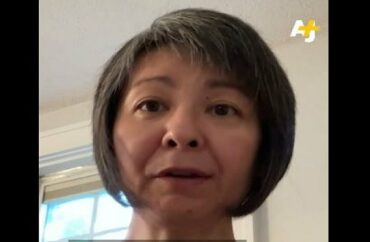
U.S. ‘doesn’t want … any questions about the accepted notion of World War II as a ‘good’ war’
United States foreign policy has had many faults, but probably the least controversial aspect was the decision to get into World War II and its conduct therein.
The war already was raging in Europe for two years, and we finally got involved after the Japanese attack on Pearl Harbor in December 1941.
After almost four brutal years, the Japanese accepted defeat after the U.S. dropped its new atomic bomb on the cities of Hiroshima and Nagasaki.
Given that nuclear weapons tech was just invented and the stigma surrounding them then-virtually non-existent, the U.S. had made the very logical decision to use the A-bomb to force a quick surrender thus saving hundreds of thousands of lives on both sides.
But Michigan State University’s Naoko Wake, who’s “explored gender, racial, cross-national identities that emerged in Asia and Asian America in post-colonial contexts,” claims the U.S. “doesn’t want to raise any questions about the accepted notion of World War II as a ‘good’ war.”
Wake (pictured) expressed these misgivings regarding the film “Oppenheimer” in a recent interview and op-ed. Her sentiments aren’t exactly original; when the film came out Wake’s like-minded “thinkers” were out in force.
But, alas, the film recently cleaned up at the Academy Awards.
Wake is miffed “Oppenheimer” is another offering of the “narrative” which “paints the [A-]bombs’ creation as a morally fraught but necessary project” … and, like other nuclear holocaust epics such as “The Day After” and “Testament,” makes it “easy to believe that if a nuclear attack had ever occurred, it must have been in a U.S. city.”
MORE: On the 70th anniversary of the atomic bombings of Japan, beware the revisionists
In the end, films like “Oppenheimer” offer few, if any, new insights about the bombings of Hiroshima and Nagasaki and their repercussions.
More than 200,000 people perished, and the lives lost included not only Japanese civilians but also Koreans who had been in Japan as forced laborers or military conscripts.
In fact, 1 in every 10 people who survived the bomb were Koreans, but the U.S. government has never recognized them as survivors of U.S. military attacks. To this day they struggle to get access to medical treatment for their long-term radiation illness.
Video of the interview demonstrates the modern dangers of context-free history pushed by “influencers” as Wake further zeroes in on the victims of the A-bombs, eliciting sympathy for those who had suffered long-lasting effects of radiation such as cancer.
Oppenheimer has been released in Japan, eight months after its global release.
We spoke to historian Naoko Wake to learn why the U.S. refuses to take accountability for the war crimes it committed in Hiroshima and Nagasaki and why all of this is relevant to us today. pic.twitter.com/sQQS8SWyLd
— AJ+ (@ajplus) April 1, 2024
“Many [bomb victims] decided not to have family at all,” Wake tells the young female narrator. “They didn’t want to have children because they were afraid of deformity.”
The narrator informs viewers that under today’s standards, use of the A-bombs would be considered a war crime. Oh, and “let’s not forget,” she says, “that the U.S. is literally the only country ever to use nuclear weapons in war.”
She then laments that no U.S. president has ever apologized to the victims of the A-bombs, and segues into how this lack of apology fits into the pattern of the U.S. never owning up to its foreign policy crimes.
“So why does it matter how the U.S. talks about Hiroshima and Nagasaki?” the narrator asks. “Well, if the U.S. avoids reckoning with its past usage of nuclear weapons, it raises the concern of how they may be used in the future.”
Well, let’s see: The fact no nukes have been used in warfare since Nagasaki (80 years) should allay a good deal of concern, especially given the Korean War (for which the use of nukes was seriously considered — just a mere five years after WWII) and 1962’s Cuban Missile Crisis.
Given the deaths from Japanese atrocities in the late 1930s through 1945 numbered in the millions (and let’s certainly not forget its ally Nazi Germany), the aforementioned novelty of atomic weaponry, and the keen myopia of Professor Wake and her young interviewer, sane people know it’s a good thing that America developed (and used) atomic technology first.
If it didn’t, current fields of study such as Wake’s “20th Century, Comparative, Cultural, Women & Gender, Science/Medicine” would not even be permitted to exist.
MORE: Princeton course explores link between ‘settler colonialism’ and ‘nuclear science’
IMAGES: AJ+/X; Michigan State U.
Like The College Fix on Facebook / Follow us on Twitter







Please join the conversation about our stories on Facebook, Twitter, Instagram, Reddit, MeWe, Rumble, Gab, Minds and Gettr.